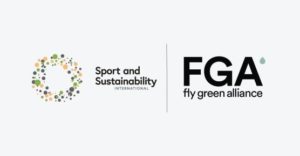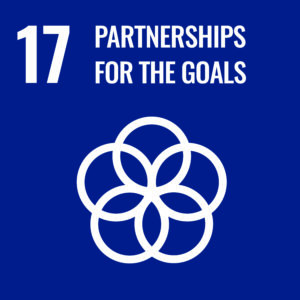
Extreme heat at the Tokyo Olympics draws attention to effect of climate change on athletes
Temperatures during the Olympic Games reached 95 Fahrenheit with high humidity in Japan.Scheduling events during the summer for greater viewership affected many athletes’ performances.Health […]


Leading Athletes Stress the Role of Sport in Building a Better World for All
By J Nastranis NEW YORK (IDN) — The United Nations is convinced that sport promotes values such as diversity, tolerance and respect and contributes […]






FGA joins Sport and Sustainability International to work on green travel in sport
We are happy to join Sport and Sustainability International who are made up of a group of sport experts across the industry. On the […]


Sky Sports aims for greenest Premier League season ever
TVBEurope talks to Jo Finon, manager of responsible productions at Sky Sports, about the broadcaster’s aims to make the new Premier league season as […]



Forest Green Rovers has partnered with Go Up on the transition to green-focused football
Forest Green have teamed up with leading search and digital marketing agency Go Up, as the Offical Training Ground partner. Go Up pledges an even […]


Successful partnership: Swedish Floorball Federation and Pantamera
In the following article we present a partnership success case within the floorball branch. Since 2015 the Swedish Floorball Federation has worked together with […]



SirajPower inks major long-term solar deal with Emirates Group
SirajPower, UAE’s locally-owned distributed solar energy provider, today announced the signing of a long-term solar deal with Emirates Group to install the region’s first […]


Coe says climate change could affect sports calendars
By GRAHAM DUNBAR TOKYO (AP) — The effects of climate change will force sports bodies to rethink their calendar of events, World Athletics president […]


To celebrate the 17 days of competition at the Olympic Games Tokyo 2020, each day we will celebrate the power of sport and its influence in relation to each of the 17 Sustainable Development Goals (SDGs).
Today is dedicated to Goal 17: the official wording is: "Strengthen the means of implementation and revitalize the global partnership for sustainable development". The Goal has 17 targets to be achieved by 2030, broken down into five categories: finance, technology, capacity building, trade and systemic issues. Progress towards targets will be measured by 25 indicators.
SDG 17 refers to the need for cross sector and cross country collaboration in pursuit of all the goals by the year 2030. It is a call for countries to align policies. SDG 17 is a vision for improved and more equitable trade, as well as coordinated investment initiatives to promote sustainable development across borders. It is about strengthening and streamlining cooperation between nation-states, both developed and developing, using the SDGs as a shared framework and a shared vision for defining that collaborative way forward. It seeks to promote international trade, and help developing countries increase their exports to ensure a universal rules-based and equitable trading system that is fair, open and beneficial to all.
- The global reach, unmatched popularity, wide appeal, universal character and value based foundation of sport, as well as its particular association with youth, make it a versatile means of implementation.
- Sport can catalyze, build and strengthen multi-stakeholder networks and partnerships for sustainable development and peace goals, involving and bringing together governments, donors, NGOs, sport organizations, the private sector, academia and the media.
- The presence and diversity of sport and sport organizations on local, national, regional and international levels can provide effective networks for partnerships and implementation of programmes.
- Sport can serve as a link between different sectors which can address a wide variety of topics, pool resources and create synergies.
- The sport, development and peace communities can contribute to collaboratively measuring progress of sustainable development by assessing and reporting on the contributions of sport to the SDGs.
- Upholding sport ideals such as respect for the opponent and the rules of the game and maintaining dignity in victory as well as defeat, can foster democratic processes and institutions. Reforming sport institutions can help to ensure that they are effective, accountable and inclusive by basing their policies and actions on human rights including principles of justice and good governance, and to promote a culture of ethics, integrity, and lawfulness.
- The promotion and maintenance of clean sport is fundamental to underpin fairness in society.
Click here for a list of examples of how sport addresses the SDG 17

To celebrate the 17 days of competition at the Olympic Games Tokyo 2020, each day we will celebrate the power of sport and its influence in relation to each of the 17 Sustainable Development Goals (SDGs).
Today is dedicated to Goal 16: the official wording is: "Promote peaceful and inclusive societies for sustainable development, provide access to justice for all and build effective, accountable and inclusive institutions at all levels". The Goal has 12 targets to be achieved by 2030. Progress towards targets will be measured by 23 indicators.
The goal has ten "outcome targets": Reduce violence; protect children from abuse, exploitation, trafficking and violence; promote the rule of law and ensure equal access to justice; combat organized crime and illicit financial and arms flows, substantially reduce corruption and bribery; develop effective, accountable and transparent institutions; ensure responsive, inclusive and representative decision-making; strengthen the participation in global governance; provide universal legal identity; ensure public access to information and protect fundamental freedoms. There are also two "means of achieving targets": Strengthen national institutions to prevent violence and combat crime and terrorism; promote and enforce non-discriminatory laws and policies.
- Sport can help to rebuild post-conflict societies and uplift affected communities and individuals
- by fostering the respect, protection and implementation of human rights. Sport can amplify important human rights messages, such as the value of inclusion, respect for diversity and non-discrimination.
- Sport provides a powerful communication platform that can be used to disseminate solidarity and reconciliation messages and to promote a culture of peace. Sport events can provide opportunities for
- advocating and realizing peace, as notably the Olympic Truce has allowed since ancient history.
- Sport and sport events can promote national unity and identity in a peaceful way, respecting others.
- Role models in sport can promote peace and human rights and foster dialogue and social cohesion.
- Sport activities can help to address war-related trauma and promote healing by providing safe spaces for activities that enable victims of war to regain a sense of security and normalcy.
- Sport can serve as a tool for supporting demobilization and disarmament efforts as well as supporting the reintegration of ex-combatants, particularly former child soldiers, into their communities.
- Sport can support the rapprochement and integration of divided communities and cultures through friendly games. The universal popularity of sport offers an important means of engaging communities that are hard to reach and socially excluded groups, for example via sport programmes for refugees or indigenous peoples.
- Sport provides a useful vehicle to train a number of important social and life skills and to address important risk factors for crime and violence, especially amongst youth. For instance, sport can raise
- awareness and be a platform to share information on sexual and gender-based violence, including in conflict situations. Ending abuse, violence and exploitation in sport can significantly contribute to achieving peaceful societies.
- Respect, equality and fair-play, some of the core values in sport are also fundamental principles for peaceful and inclusive societies, thus sport programmes that emphasize these values can contribute to the realization of such societies.
Click here for a list of examples of how sport addresses the SDG 16